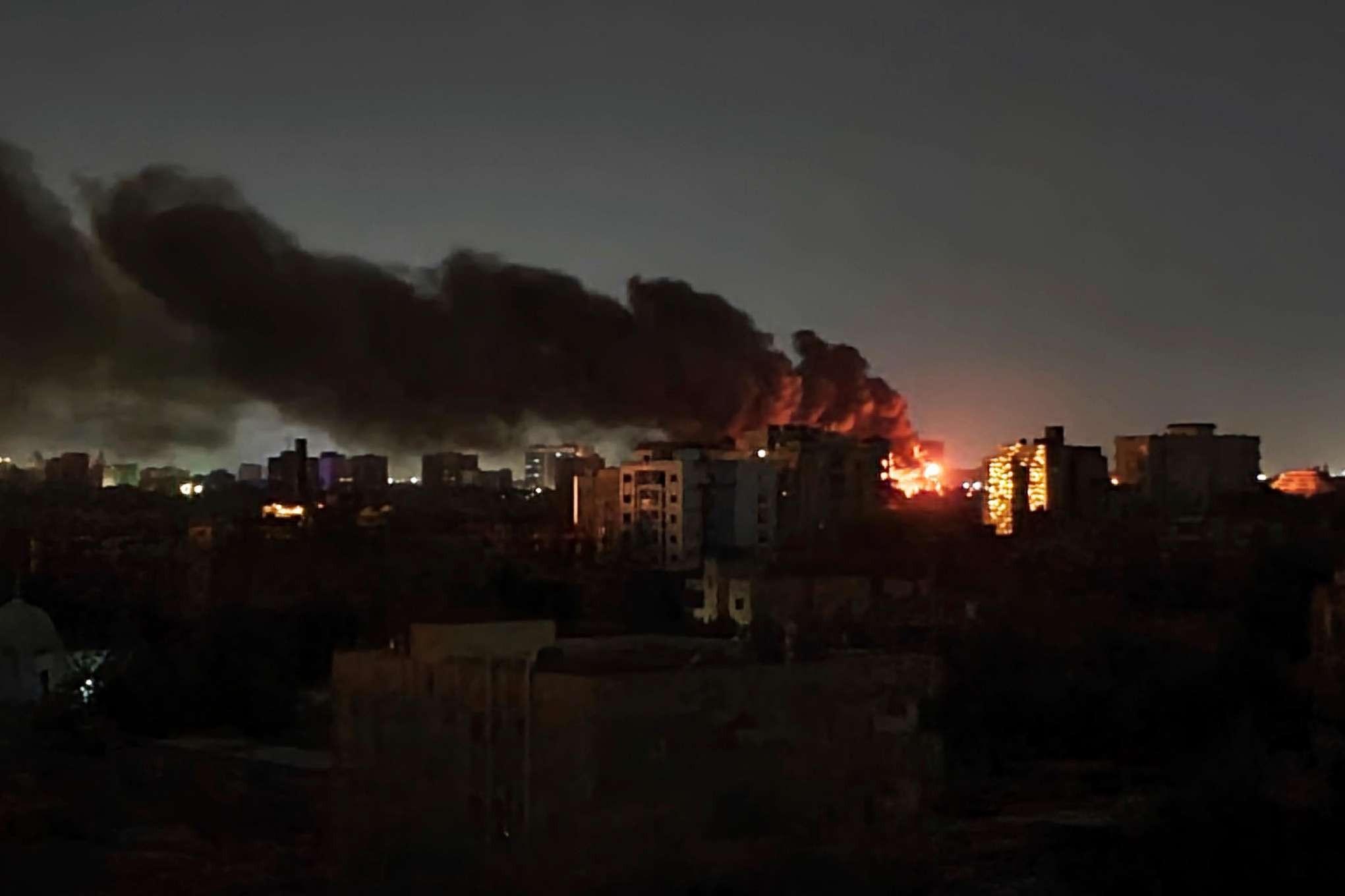Sudan army: Rescue of foreign citizens, diplomats expected
KHARTOUM

The Sudanese army said Saturday it was coordinating efforts to evacuate American, British, Chinese and French citizens and diplomats from Sudan on military aircraft, as the bloody fighting that has engulfed the vast African nation entered its second week.
The military said that its chief, Gen. Abdel Fattah Burhan, had spoken to leaders of several countries who have requested safe evacuations of their citizens and diplomats from Sudan. The prospect has vexed officials as most major airports have become battlegrounds and movement out of the capital, Khartoum, has proven intensely dangerous.
Burhan “agreed to provide the necessary assistance to secure such evacuations for various countries,” the military said.
Questions have swirled over how the mass rescues of foreign citizens would unfold, with Sudan's main international airport closed and millions of people sheltering indoors. As battles between the Sudanese army led by Burhan and a rival powerful paramilitary group rage in and around Khartoum, including in residential areas, foreign countries have struggled to repatriate their citizens — some of whom are running short on food and basic supplies while hunkered down.
Burhan said that some diplomats from Saudi Arabia had already been evacuated from Port Sudan, the country’s main seaport on the Red Sea, and airlifted back to the kingdom. He said that Jordan’s diplomats would soon be evacuated in the same way. The port is in Sudan's far east, some 840 kilometers (520 miles) from Khartoum.
The Pentagon said earlier this week it was moving additional troops and equipment to a Naval base in the tiny Gulf of Aden nation of Djibouti to prepare for the evacuation of U.S. Embassy personnel. But the White House said Friday it had no plans for a government-coordinated evacuation of an estimated 16,000 American citizens trapped in Sudan.
Burhan told Saudi-owned TV station Al-Hadath on Saturday that Khartoum’s airport would not handle any evacuations because of the ongoing fighting. He claimed that the military had regained control over all the other airports in the country, except for one in the southwestern city of Nyala.
“We share the international community's concern about foreign nationals,” he said. “Living conditions are deteriorating.”
Even as the warring sides said Friday they'd agreed to a cease-fire for the three-day Muslim holiday of Eid al-Fitr, explosions and gunfire rang out across Khartoum on Saturday. Two cease-fire attempts earlier this week also rapidly collapsed. The turmoil has dealt a perhaps fatal blow to hopes for the country’s transition to a civilian-led democracy and raised concerns the chaos could draw in its neighbors, including Chad, Egypt and Libya.
"People need to realize that the war has been continuous since day one. It has not stopped for one moment,” said Atiya Abdalla Atiya, secretary of the Sudanese Doctors’ Syndicate, which monitors casualties. The clashes have killed over 400 people so far, according to the World Health Organization. The bombardments, gunbattles and sniper fire in densely populated areas have hit civilian infrastructure, including many hospitals.
The international airport near the center of the capital has come under heavy shelling as the paramilitary group, known as the Rapid Support Forces, or RSF, has tried to take control of the compound. In an apparent effort to oust the RSF fighters, the Sudanese army has pounded the airport with airstrikes, gutting at least one runway and leaving wrecked planes scattered on the tarmac. The full extent of damage at the airfield remains unclear.
On Saturday, Saudi Arabia and Jordan both announced that they had started arranging for the repatriation of their citizens stuck in Sudan. Officials did not elaborate on how the plans would unfold. Jordan said it was “taking into account the security conditions on the ground" and was coordinating its efforts with Saudi Arabia and the United Arab Emirates.
The conflict has opened a dangerous new chapter in Sudan's history, thrusting the country into uncertainty.
“No one can predict when and how this war will end,” Burhan told Al-Hadath. “I am currently in the command center and will only leave it in a coffin.”
The current explosion of violence came after Burhan and the chief of the RSF, Mohammed Hamdan Dagalo, fell out over a recent internationally brokered deal with democracy activists that was meant to incorporate the RSF into the military and eventually lead to civilian rule.
The rival generals rose to power in the tumultuous aftermath of popular uprisings that led to the ouster of Sudan’s longtime ruler, Omar al-Bashir, in 2019. Two years later, they joined forces to seize power in a coup that ousted the civilian leaders.
Both the military and RSF have a long history of human rights abuses. The RSF was born out of the Janjaweed militias, which were accused of atrocities in crushing a rebellion in Sudan’s western Darfur region in the early 2000s.
Many Sudanese — trapped in their homes as food supplies dwindle — fear that despite the generals' repeated promises, the violence will only escalate as tens of thousands of foreign citizens prepare to escape Sudan.
“We are sure both sides of fighting are more careful about foreign lives than the lives of Sudanese citizens,” Atiya said.
















